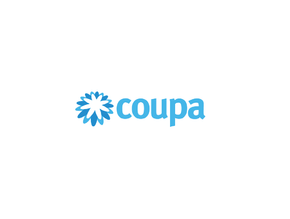Accenture and Conga partner to streamline RLM processes

Procurement professionals understand the importance of transparency into process lifecycles, and that being able to capture wider views can provide an important launch pad from which to optimise processes for business success.
Revenue lifecycle management (RLM) is the process of managing an organisation's entire revenue cycle, from the initial quote to the collection of payment.
It includes all the steps involved in generating revenue, such as sales, contracts, billing and customer service. RLM is crucial for organisations as it helps them manage and predict revenue accurately, leading to increased efficiency, cost savings, and ultimately, better business outcomes.
Procurement is a critical component of revenue lifecycle management. The goods and services that a company procures impact its revenue, customer acquisition, order management, and revenue recognition processes.
It is essential to have a well-managed procurement process to ensure the success of the revenue lifecycle management process. There is a close relationship between revenue lifecycle management and procurement:
- Procurement impacts revenue: The goods and services that a company procures have a direct impact on its revenue. Procuring high-quality products and services can help a company increase its revenue, while low-quality goods and services can lead to customer dissatisfaction, reduced sales, and revenue loss.
- Procurement affects customer acquisition: The quality of the goods and services that a company procures can also impact customer acquisition. If a company procures high-quality products and services, it can attract more customers, while low-quality products and services can drive customers away.
- Procurement impacts order management: The procurement process can impact the order management process, which is a crucial component of revenue lifecycle management. If the procurement process is not efficient, it can lead to delays in order fulfilment, which can result in dissatisfied customers and lost revenue.
- Procurement affects revenue recognition: The procurement process can also impact revenue recognition. If the procurement process is not properly managed, it can lead to inaccurate financial reporting, which can impact revenue recognition.
Effective RLM enables organisations to streamline processes, improve accuracy and compliance, and provide a better customer experience.
Revenue lifecycle management (RLM) is essential for organisations for several reasons:
- Predictability: Accurate revenue forecasting is critical for organisations to make informed business decisions, identify growth opportunities and adjust their strategies. RLM helps organisations predict revenue accurately by providing insights into the revenue lifecycle and identifying areas that need improvement.
- Efficiency: RLM helps organisations streamline their revenue processes, reducing operational costs and improving efficiency. Automation of revenue processes helps to reduce manual errors and ensure compliance with regulations.
- Compliance: RLM helps organisations ensure compliance with regulatory requirements such as tax regulations, data protection laws, and financial reporting standards. This helps to avoid legal and financial penalties, protecting the reputation and financial stability of the organisation.
- Customer experience: RLM enables organisations to provide a better customer experience by streamlining billing and payment processes, providing accurate quotes, and resolving issues quickly. This helps to build customer loyalty and enhance the reputation of the organisation.
Accenture and Conga have formed a strategic partnership aimed at helping clients transform their revenue lifecycle management processes.
The partnership brings together Accenture’s delivery, advisory and industry experience with Conga's revenue lifecycle management solutions.
Together, they help global companies drive more predictable revenue by streamlining and automating revenue processes.
Accenture and Conga have collaborated on engagements for dozens of clients in healthcare, life sciences, financial services, high-tech and industrial industries.
The partnership is making a significant difference for their clients. For instance, they helped an electrical equipment client standardise its configure price and quote (CPQ) processes, which replaced thousands of pricing data for products with a process that creates individualised quotes with real-time pricing data.
Customers can quickly see the impact of decisions and changes, and offers can be produced in minutes, reducing operational and maintenance costs.
Further, Accenture and Conga also helped an industrial manufacturing client automate and standardise complex contract lifecycle management processes to increase visibility and compliance.
With Conga CLM, the company now has a single view of contracts in one place, including versions, approval history, and metrics.
Michael Heald, senior managing director and ecosystem and growth lead for Accenture Strategy, said, “Managing and predicting revenue, especially in times of rapid change and constant global instability, is essential for organisations to stay competitive in their pricing and sales operations. Together with Conga, we can help organisations optimise their revenue cycle management solution to streamline and increase efficiencies in their operations.”
Noel Goggin, chief executive officer and culture leader at Conga, said, “Companies of all sizes and across all industries have a critical need to increase revenue certainty and improve operational efficiencies.
“Together, Conga and Accenture have a unique combination of capabilities and expertise to help organisations and their teams across the globe achieve these business outcomes.”
The partnership between Accenture and Conga is a game-changer for organisations worldwide, transforming the revenue lifecycle management processes of their clients, optimising revenue cycles, and driving efficiencies to support business growth.
- Accenture Appoints Infosys Veteran Binny Mathews as CPOProcurement Strategy
- Navigating ESG complexity in procurementSustainable Sourcing
- Icertis: Propelling CLM into rich contract intelligenceIndirect Procurement
- Alibaba & L’Oréal partner for circular economy in cosmeticsSustainable Sourcing






